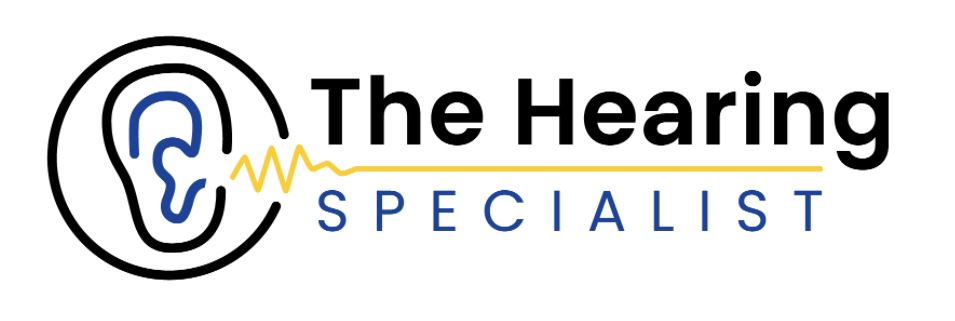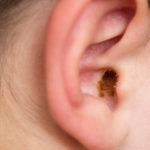If you’ve recently been diagnosed with hearing loss, we understand this can be difficult to come to terms with. A great solution for hearing loss is hearing aids. A question we’re asked frequently is “How effective are they for hearing loss?”
So, in today’s article, we will be exploring how effective hearing aids are. Diving into their benefits, but also discussing their limitations so you have a balanced view of them.
Understanding hearing loss & its impact
Hearing loss is one of the most impactful conditions you could ever experience. Not only does your hearing decay, but it affects your overall quality of life. Communication is arguably the biggest barrier you will face. Depending on the severity of your hearing loss, you may not be able to effortlessly communicate with your friends, family, and work colleagues anymore. You’ll have to focus incredibly hard to understand what people are saying, which can be challenging daily; especially if you’re in a noisy environment – that’s the hardest.
This is where you must speak with your close ones openly and confidently about your hearing loss. You may feel anxious to speak up about your hearing struggles, but speaking from experience, once you’ve opened up you will feel ten times better. The extra support you gain from speaking to those around you is unparalleled. Opening up will feel like a weight has been lifted from your shoulders. Others will now be aware of your situation, and provide you with the help needed to face it.
Speaking with people about your hearing loss is a great way of making things easier for you physically and mentally. But unfortunately, it doesn’t improve your hearing. This is where hearing aids come in. Hearing aids can help improve your hearing in several ways, but there are a few limitations you need to be aware of. In the next section, we will explore the pros and cons.
The benefits of hearing aids
Hearing aids can provide many benefits for your hearing, such as:
Enhanced sounds
The first and obvious benefit is you will be able to hear sounds that you previously couldn’t hear. Everyday noises such as birds, doorbells, alarms, the kettle boiling or the phone ringing can become easier to identify with the use of hearing aids. This may seem like a small improvement, but it’s a huge one, especially when it comes to your safety and being able to easily hear the sound of alarms or any other danger.
Improved speech perception
Another great benefit of hearing aids is their ability to help you understand speech. You will be able to communicate with your friends, family and colleagues much better with your hearing almost restored. You will feel more comfortable in social settings when talking to people, and you’ll be able to follow conversations in different environments much easier too. This is a major boost for you physically and mentally. You can revert to your previous lifestyle; enjoy listening to music, watching TV and socialising. Gone are the days of you feeling isolated, now, you will have a spring in your step.
Quality of life
The use of hearing aids can have a dramatic impact on your overall quality of life. Your hearing will be amplified, and you won’t struggle to hear quieter sounds as much. This in turn will impact you positively. You won’t need to focus as hard on hearing sounds throughout your day, ensuring you can be fully present in your surroundings. From here, your social life will flourish. Communicating with your friends, family or colleagues won’t feel like a task anymore. You will be able to enjoy yourself, and not feel self-conscious about your hearing difficulties.
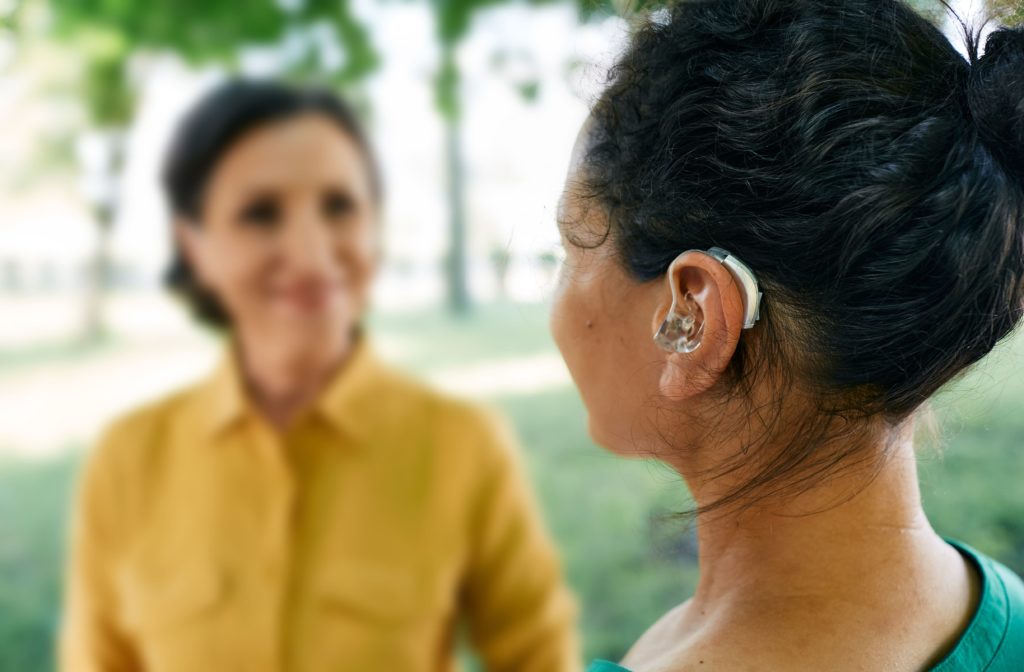
The limitations of hearing aids
On the other hand, whilst hearing aids can make a positive impact on your hearing, they aren’t perfect.
Hearing aids don’t cure hearing loss
Firstly, hearing aids do not fully restore your hearing completely. This is a common misconception, they’re known as assistive devices rather than cures for hearing loss. They can enhance sounds, but they’re unable to replicate the functions of the human ear. This technology isn’t here yet, but there have been some promising signs as of late.
As of the 10th May 2024, “A UK girl born deaf can now hear unaided, after a groundbreaking gene-therapy treatment”. Check out this article from the BBC.
They take some getting used to
As with any new technology, there is always an adjustment period to begin with which has no time stamp. An audiologist will make tweaks to ensure the hearing aid is optimised for your needs, and it can be difficult wearing them at first. It can take a while, but there are ways to make it easier. Our tips for getting used to wearing hearing aids are:
- Start with short sessions
- Practise active listening
- Seek support from loved ones and your audiologist
- Experiment in quiet environments
Keep it simple to begin with, and seek support when you need it. This will help you adjust to wearing hearing aids. Our promise to you – it will become easier over time.
Price
Price can be another limitation of hearing aids. It’s difficult to argue they’re ‘easily affordable’, as certain hearing aids cost more than others, depending on what model or brand you choose; and if you go private or through the NHS. However, there are payment plans on offer to help you afford the hearing aid. At The Hearing Specialist, we offer Interest-Free Credit on all models, so you can spread the cost over 12 months.
Learn more about the differences between private and NHS hearing aids.
Whilst there are positives and negatives for hearing aids, overall, they are effective. No matter what type of hearing loss you’re experiencing, there will be a device suited to your needs. An audiologist can tailor a hearing aid to suit your type of hearing loss, and closely monitor you to make adjustments when needed. Once this has been ironed out, you can start enjoying the benefits of hearing aids. You will be able to hear clearly, understand and communicate better with those around you, and your quality of life will improve.
Granted, there may be an adjustment period to fine-tune the hearing aids. You could encounter minor issues, but an audiologist will provide you with the right support.
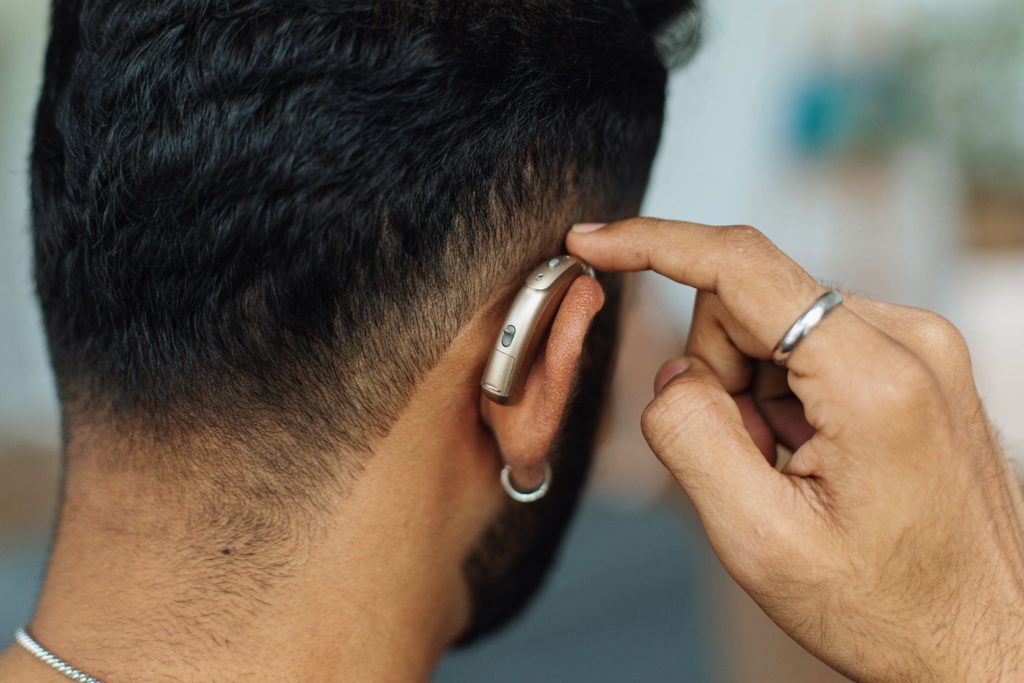
The different types of hearing aids
A great advantage of hearing aids is there are several different types for you to choose from. Everyone’s hearing is different, so you need a device tailored towards your specific needs. There are seven options you could choose from:
Receiver in the Canal (RIC)
Receiver in the canal hearing aids provide a discreet look, and you can customise them to improve your comfort and confidence when wearing them. The receiver is connected by a thin wire to the speaker in the ear canal.
In the Ear (ITE)
In the ear hearing aids are arguably the go-to hearing aids. They’re often barely noticeable due to the variety of colours available, and you can match them with your skin tone or hair colour to further conceal them from sight. They’re easy to wear, control and maintain; and as they are custom moulded for your ears – you will gain increased comfort.
Behind the Ear (BTE)
Behind the ear hearing aids are commonly known as the more ‘traditional’ devices, and remain a popular choice. The hearing aid rests behind your ear, and a small tube is connected to a mould that sits within the ear.
In the canal
In the canal hearing aids are similar to ITE (In-the-ear), except they’re a bit smaller and just fill the opening of the ear. They are less visible than other hearing aids, however, they’re not recommended for those with severe hearing loss.
CROS and BiCROS hearing aids
CROS and BiCROS hearing aids are ideal for those who have lost their hearing in one ear. They help to pick up sounds from your poorer hearing ear and transmit it to your better ear. Depending on the model, this can be done wirelessly or with a wire.
Body-worn hearing aids
If you have severe hearing loss, then body-worn hearing aids are the ideal solution. They’re made up of a small box connected to earphones, which can be clipped to your clothing. They’re not commonly used and may not always be available.
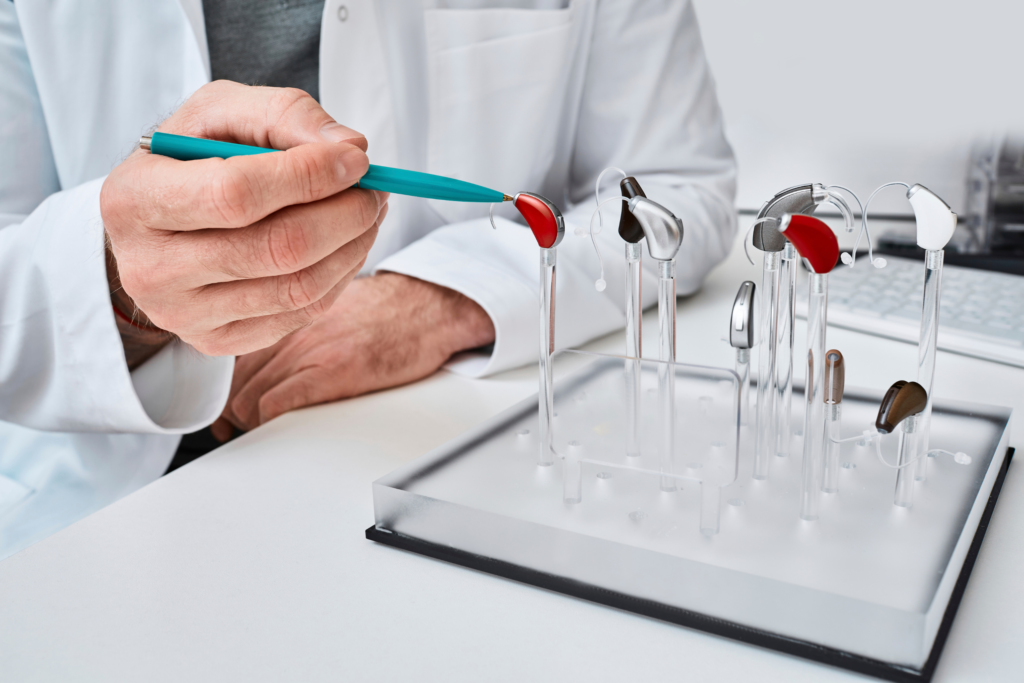
Book a hearing aid consultation with The Hearing Specialist
If you would like to speak to an audiologist further about hearing aids, there’s no better place to look than us. At The Hearing Specialist, we’re not involved with any manufacturer, meaning we can provide unbiased, expert advice. We can help you select the best hearing aid that is tailored to your needs; from brands such as Widex, Bernafon, and Signia.
Get in touch with us today to book a hearing aid consultation.
